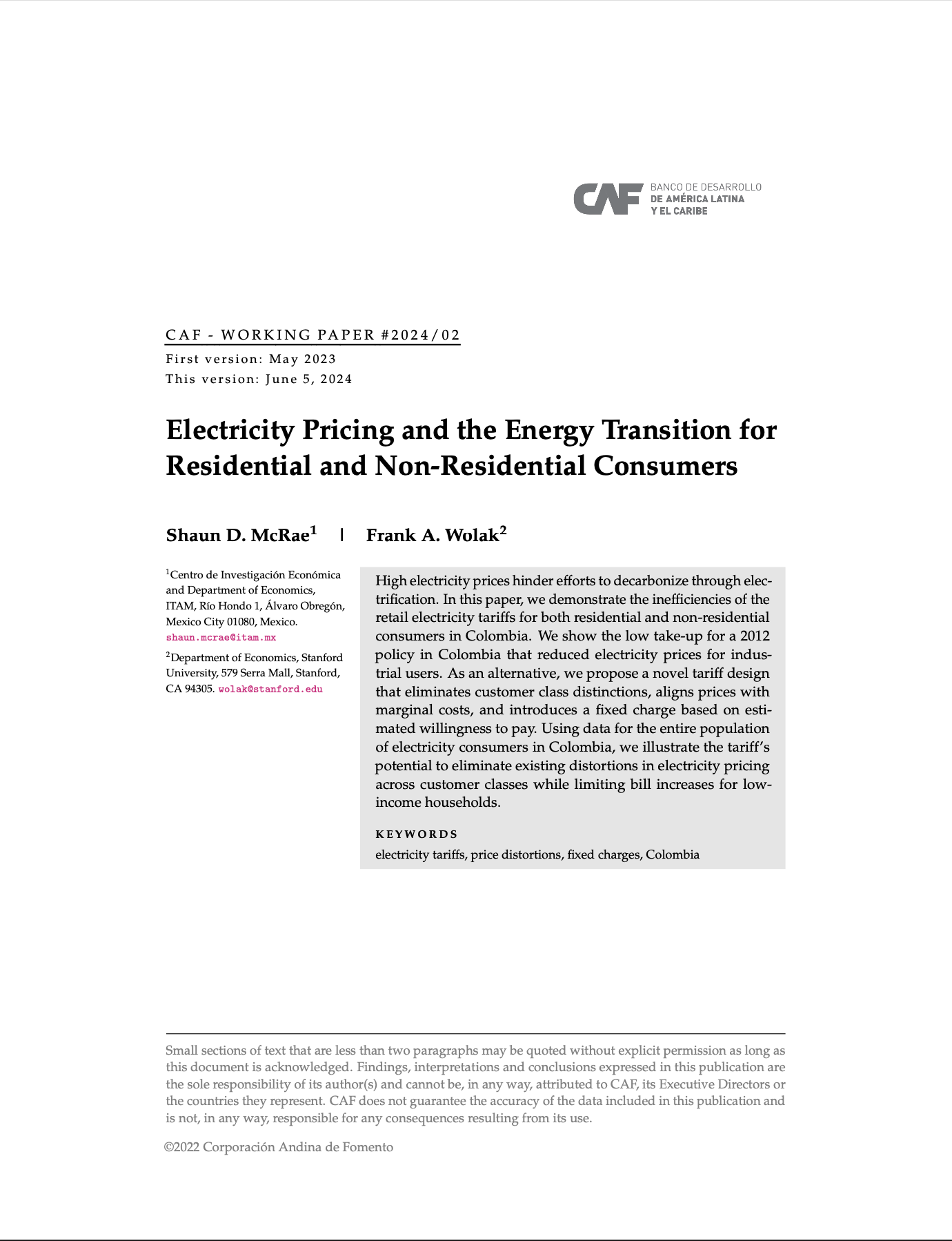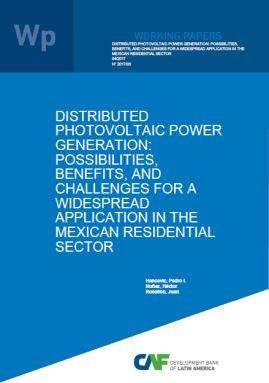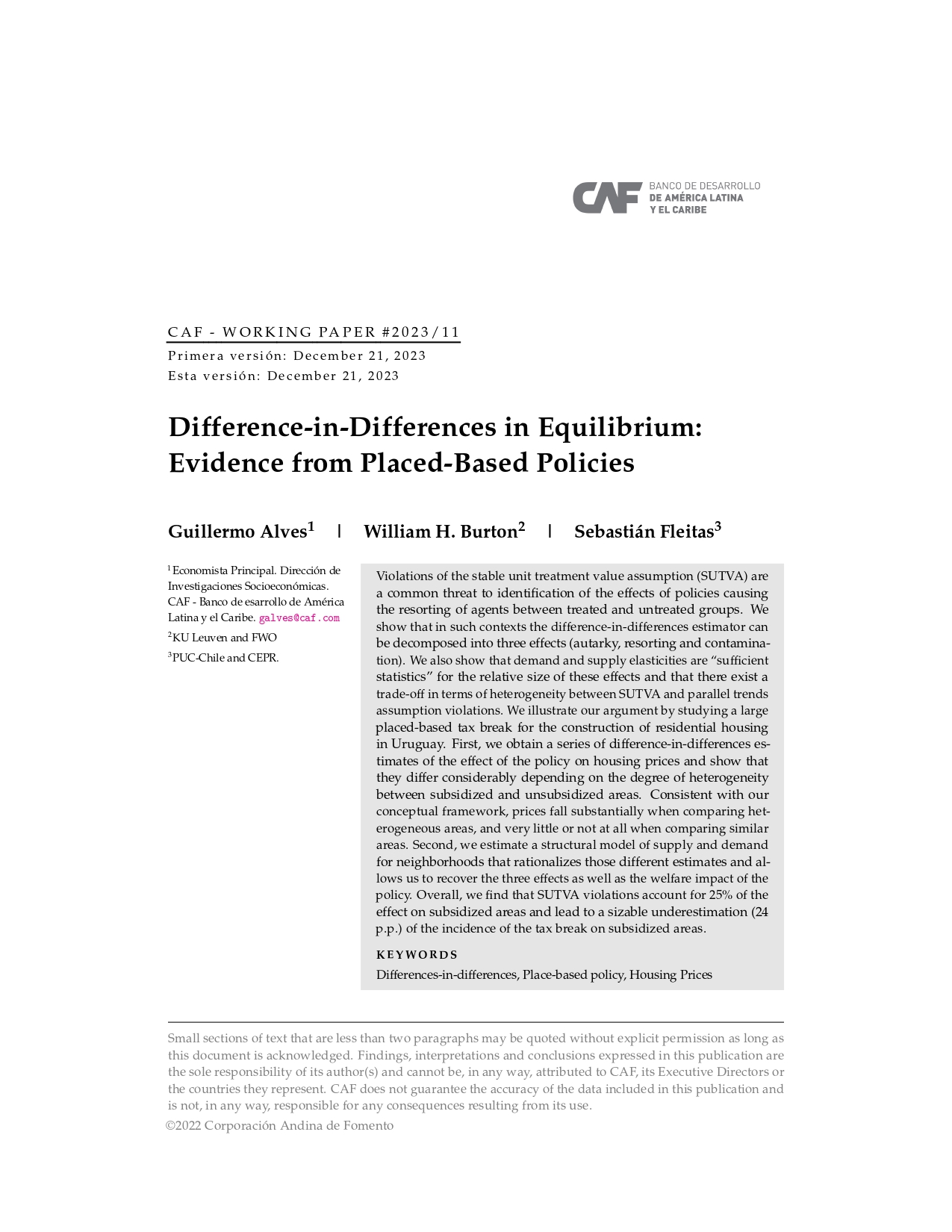Electricity Pricing and the Energy Transition for Residential and Non-Residential Consumers
Resumo
High electricity prices hinder efforts to decarbonize through electrification. In this paper, we demonstrate the inefficiencies of the retail electricity tariffs for both residential and non residential consumers in Colombia. We show the low take up for a 2012 policy in Colombia that reduced electricity prices for industrial users. As an alternative, we propose a novel tariff design that eliminates customer class distinctions, aligns prices with marginal costs, and introduces a fixed charge based on estimated willingness to pay. Using data for the entire population of electricity consumers in Colombia, we illustrate the tariff’s potential to eliminate existing distortions in electricity pricing across customer classes while limiting bill increases for low income households.
Assunto
País / Región
Data
2024-01-05Cite esta publicação
Item que pertence à coleção

Autor
McRae, Shaun DWolak, Frank A
Items Relacionados
Just Energy Transition / Projection Assumptions
The project’s general objective is to develop a methodological approach to define the concept of a just energy transition (JET) in a national context, ...
Distributed Photovoltaic Power Generation: Possibilities, Benefits, and Challenges for a Widespread Application in the Mexican Residential Sector
Mexico plans to implement a national program to support the adoption of distributed photovoltaic generation (DPVG) among qualified households. The main ...
Difference-in-Differences in Equilibrium: Evidence from Placed-Based Policies
Violations of the stable unit treatment value assumption (SUTVA) are a common threat to identification of the effects of policies causing the resorting ...




